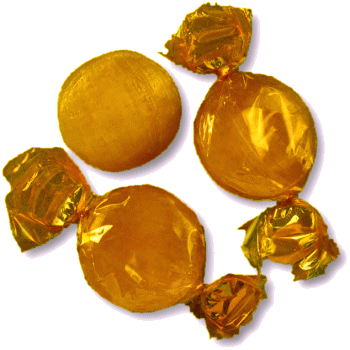




WELCOME TO AN ENTERTAINMENT SITE FOR SCOTTISH COUNTRY DANCERS!
Enjoy this curated selection of theme-related dances for celebrations and holidays, or find a dance associated with a special calendar day, or EVEN your own birthday!
A Little Tea and Gossip, Robert Payton Reid, 1859
Jun 25

Cream Tea and Gossip Week
The Auld Blether
Other Scottish Country Dances for this Day
Today's Musings, History & Folklore
Sir George: "I never listen to gossip."
Louisa: "That must make life dull."
~ The Duchess of Duke Street, "A Lady of Virtue", 1976
We all know that it's best to avoid listening to gossip about fellow members of the Scottish Dance Community. However, if you find yourself enjoying a nice cream tea, there might just be some intriguing tidbits to hear. Cream Tea, the quintessentially British refreshment, was 'invented' by Anna, the 7th Duchess of Bedford, who started the tradition to combat her mid-afternoon 'sinking feeling.' Initially a private ritual, she soon began inviting friends to join her for tea and to chat about the latest scandals. The practice quickly caught on among the fashionable upper classes of London society. The term "gossip" has evolved over time. Originally from the Old English "godsibb," meaning a child's godparent or sponsor at a baptism, it gradually came to signify a good friend, typically a woman. By the 1500s, gossip referred to idle chatter and rumor, and by the mid-1800s, it was used both as a noun and a verb to mean idle chatter and rumor. In Scotland, the term "blether" is more akin to simply having a chat. Words like "clatter" or "clattern" (to gossip or chatter on) and "clishmaclaver" (for an idle chat) also refer to gossip and can enliven any teatime. These terms are certainly preferable to "quidnunc," a gossip-themed term meaning a person who engages in idle chatter, often with outdated news. This jig has plenty of figures to allow for a passing comment to partners or corners, or a knowing wink! 🍵 🍰 🍓
The Auld Blether
This week marks Cream Tea Week! Time for tea and gossip and talking nonsense, the auld blether. Blether, a variant of the word blather is from the Old Norse blathra, from a word for nonsense.
In colloquial terms, the word blether means a lengthy chat between friends. When applied to a person, blether is also a term for a gossip, a chatterbox, or someone who talks a lot of nonsense. A bletherer can also be someone who is prone to boasting and exaggeration. With roots as far back as the 15th century, blether has featured regularly in Scottish literature.
Sexist or not, and ignoring the fact that men gossip as much as women (according to a recent study) almost from the time tea was popularized in Britain in the 1600s, tea drinking has been synonymous with female blether and tittle-tattle!
Old dictionaries of English slang provide colourful proof of this association, especially Francis Grose's 1785 opus, A Classical Dictionary of the Vulgar Tongue. Tea has numerous entries in Grose's dictionary. Among other things, it is called "prattle broth," "chatter broth," "scandal broth," and "cat lap."
A year after Grose's dictionary was published, a variation of the term "scandal broth" appeared in Scotsman Robert Burns' poem, The Twa Dogs: A Tale, in a stanza parodying society ladies who pretend to be as gracious as sisters, but think spiteful thoughts as they "sip the scandal-potion pretty."
And for more on the association of tea with "delightful gossip" (including many more vulgar terms than mentioned here), click the painting of Afternoon Tea for Three by Frederic Soulacroix (1858 -1933).
As US President Teddy Roosevelt's daughter Alice Alice Roosevelt Longworth famously quipped, “If you haven't got anything nice to say about anybody come sit next to me.”
Click the dance cribs or description below to link to a printable version of the dance!




